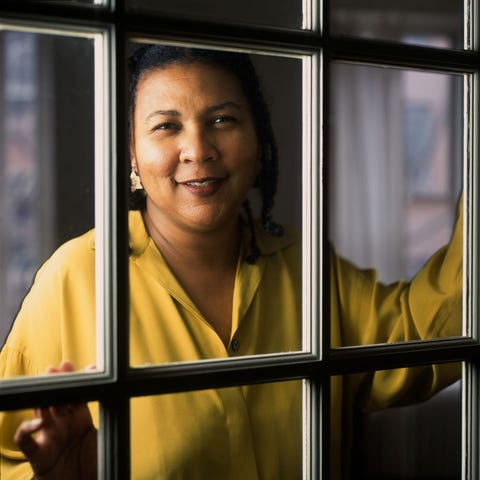One of things I’ve been doing lately is thinking about my legacy as a writer, as a person. It feels a little abstract to think about what your influence will be when you’re gone. And then someone you love dies. And it doesn’t feel so abstract.
My heart is still heavy thinking about bell hooks’ transition. I was honored, as someone who was profoundly shaped by her passion, her courage, her clear-sighted articulation of the things that keep Black women from soaring — and how to overcome them — were balm for me. She was really an iconic trailblazer. I tried to do her work and life and impact some justice for Oprah Daily. An excerpt is below. You can read it here, or here. I hope she is resting well.
Mourning bell hooks—who died on December 15, 2021, at age 69 after giving us four decades of trailblazing feminist scholarship—means celebrating everything she taught us about what it means to be a Black woman in love with herself and the world, and with the life of the mind. With her passing, there will be one fewer pair of hands holding up Black women—all women—as inherently valuable. For decades she has helped me in my journey to become myself; her legacy will live in my bones, and in the minds and hearts of all she awakened and inspired.
Born Gloria Jean Watkins in Hopkinsville, Kentucky, in 1952, hooks honored her matrilineal line by taking her maternal great-grandmother’s name as her nom de plume in a lowercase version to emphasize “the substance of books, not who I am.” She influenced several well-known luminaries and writers to adopt the same practice. Let us defer to the work of our hands and pay tribute to our elders instead of bowing to tradition and capitalizing ourselves.
Maybe honoring her elders and ancestors played a role in enabling her to speak and write her fame into existence, to hear her family tell it. Like most Southern towns, Hopkinsville, Kentucky, was stratified by race and class; hooks’s father was a janitor, and her mother a maid. “Gloria learned to read and write at an early age and even proclaimed she would be famous one day,” her family said in a statement. “Growing up, the girls shared an upstairs bedroom, and she would always keep the light on well into the night. Every night we would try to sleep, but the sounds of her writing or page turning caused us to yell down to Mom to make her turn the light off.”
Her family went on to say that Gloria always had at least 10 serious books she was reading simultaneously, whether Shakespeare, Little Women, or other classics, which quenched her “great thirst for knowledge, which she incorporated into her life’s work.” Against the backdrop of the great civil rights struggles, she graduated from a newly integrated high school. Her intellectual acumen and writer’s gifts were apparent early, and she majored in English literature at Stanford University, then earned her MA from the University of Wisconsin and her PhD from the University of California at Santa Cruz, where she wrote her dissertation on Toni Morrison.

She thrived in the classroom, and her criticism and charisma quickly acquired a following both in and beyond academic circles. I first encountered her during one of my many trips to my local New York library at age 13 and was instantly in awe. Hooks wrote with confident wisdom and ease about topics I had never read from a Black woman’s perspective; she seemed so like me, even if she was from a different part of the country and a different generation. We were kindred spirits.
My dog-eared copy of Sisters of the Yam: Black Women and Self-Recovery was the gateway to reprogramming myself. The microaggressions, the confusing pauses and rudeness that came my way because of my dark skin and natural hair—bell hooks helped me understand that these were the manifestations of social constructs she interrogated, not figments of my imagination. Her writing about writing, the way she mined the role of self-love and self-care: All these things and more marked her as a visionary. Radical, yes, for her positions on racism and patriarchy and capitalism. Radical, too, for attending to the hearts of Black women. For saying that we were not just our work, but we deserved, as much as anyone, our own affection and tenderness. The world would not give it to us, not without a fight.






